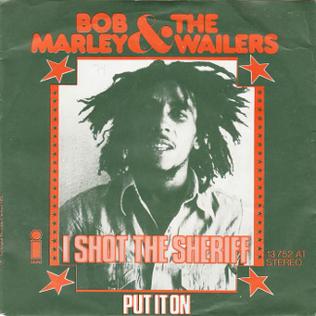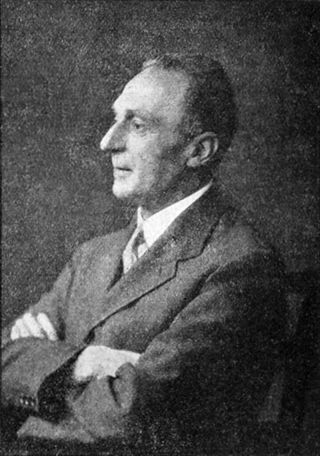Related Research Articles

Graphology is the analysis of handwriting with attempt to determine someone's personality traits. No scientific evidence exists to support graphology, and it is generally considered a pseudoscience or scientifically questionable practice. However, it has historically been considered legitimate for use in some court cases. The term is sometimes incorrectly used to refer to forensic document examination, due to the fact that aspects of the latter dealing with the examination of handwritten documents are occasionally referred to as graphanalysis.
IGAS is the abbreviation for International Graphoanalysis Society. The organization is far more commonly referred to by its initials than the full name.

Handwriting is the writing done with a writing instrument, such as a pen or pencil, in the hand. Handwriting includes both printing and cursive styles and is separate from formal calligraphy or typeface. Because each person's handwriting is unique and different, it can be used to verify a document's writer. The deterioration of a person's handwriting is also a symptom or result of several different diseases. The inability to produce clear and coherent handwriting is also known as dysgraphia.

In forensic science, questioned document examination (QDE) is the examination of documents potentially disputed in a court of law. Its primary purpose is to provide evidence about a suspicious or questionable document using scientific processes and methods. Evidence might include alterations, the chain of possession, damage to the document, forgery, origin, authenticity, or other questions that come up when a document is challenged in court.

"I Shot the Sheriff" is a song written by Jamaican reggae musician Bob Marley and released in 1973 with his band the Wailers.

Leo Martello was an American Wiccan priest, gay rights activist, and author. He was a founding member of the Strega Tradition, a form of the modern Pagan new religious movement of Wicca which drew upon his own Italian heritage. During his lifetime he published a number of books on such esoteric subjects as Wicca, astrology, and tarot reading.

Friedrich Konrad Eduard Wilhelm Ludwig Klages was a German philosopher, psychologist, graphologist, poet, writer, and lecturer, who was a two-time nominee for the Nobel Prize in Literature. In the Germanosphere, he is considered one of the most important thinkers of the 20th century. He began his career as a research chemist according to his family's wishes, though soon returned to his passions for poetry, philosophy and classical studies. He held a post at the University of Munich, where in 1905 he founded the Psychodiagnostisches Seminar; the latter was forced to close in 1914 with the outbreak of World War I. In 1915, Klages moved to neutral Switzerland, where over the following decades much of his mature philosophical works were written. Klages died in 1956.
Beyond Reason was a television quiz show seen throughout Canada from 1977 to 1980. Programmes featured a group of experts from various paranormal specialties attempting to find the identity of hidden visitors, resembling a combination of Front Page Challenge, What's My Line? and The Amazing World of Kreskin.

Robert Saudek was a Czech-born graphologist and writer of novels, stories, poems and plays. He had considerable influence on the content and standing of graphology worldwide. He also published numerous articles in many languages in periodicals as diverse as The Listener, Zeitschrift für Menschenkenntnis and the Journal of Social Psychology. He also founded the professional graphology society in the Netherlands. He also started two academic periodicals: one in Dutch and the other in English. Many graphologists worldwide today use Saudek’s work without knowing the origin.

Barry L Beyerstein was a scientific skeptic and professor of psychology at Simon Fraser University in Burnaby, British Columbia. Beyerstein's research explored brain mechanisms of perception and consciousness, the effects of drugs on the brain and mind, sense of smell and its lesser-known contributions to human cognition and emotion. He was founder and chair of the BC Skeptics Society, a Fellow and member of the Executive Council of the Committee for the Scientific Investigation of Claims of the Paranormal (CSICOP), now known as the Committee for Skeptical Inquiry. Associate editor of the Scientific Review of Alternative Medicine Journal as well as a contributor to Skeptical Inquirer, Beyerstein was one of the original faculty of CSICOP's Skeptic's Toolbox. Beyerstein was a co-founder of the Canadians for Rational Health Policy and a member of the advisory board of the Drug Policy Foundation of Washington D.C. He was a founding board member of the Canadian Foundation for Drug Policy and contributed to the International Journal of Drug Policy. According to long-time friend James Alcock, Beyerstein once addressed the House of Commons Standing Committee on Health during discussions leading up to the passage of the Controlled Substances Act". Along with his brother Dale, Barry was active in the British Columbia Civil Liberties Association.

Marc Jeffrey Seifer is an American author who has published books on handwriting analysis (Graphology), human consciousness and the mind, biographies of the inventor Nikola Tesla, and several works of fiction. His book Wizard: The Life & Times of Nikola Tesla: Biography of a Genius has been called "Serious scholarship" by Scientific American, "Revelatory" by Publishers Weekly and is "Highly Recommended" by the American Association for the Advancement of Science.

Charles Armand Auguste Ferdinand Mercier du Paty de Clam was a French army officer, an amateur graphologist, and a key figure in the Dreyfus affair.

Jules Crépieux-Jamin (1859–1940) was a French graphologist born in Arras.

Jean-Hippolyte Michon was a French priest, an archaeologist, and the founder of graphology.
Wilhelm Langenbruch was a German graphologist born in Aplerbeck.

Beverley East is a leading expert in the field of handwriting analysis, a court-qualified forensic document examiner and author. She works in her home city of Washington, DC, and in Jamaica.

Igal Vardi is an Israeli graphologist, psychologist, artist, writer and entrepreneur. His painting style is Topological painting.

Rafael Schermann (1879–1945) also known as Raphael Schermann was a Polish graphologist, self-proclaimed psychic and writer.

Reginald "Reg" Piggott was a British book cartographer whose maps were known for their elegance, clarity, and distinctive italic script. His work was published by Cambridge University Press and The Folio Society among other presses. Early in his life, he was a campaigner for better handwriting and in 1957 organised a survey of British handwriting which drew over 25,000 responses and was subsequently published in book form. He advocated the use of a form of italic script to replace the civil service script widely used in Britain which he thought tended to illegibility when written at speed.

Saman Aslam is the first and the youngest female graphologist and graphotherapist in Pakistan. Graphology is the analysis of handwriting to assess personality traits and health issues of the writer. Graphology is pseudoscience.
References
- ↑ Spiegel des Unvergänglichen. List-Bücher (in German). Eric Singer (ed.). Munich: Paul List Verlag. 1955.
{{cite book}}: CS1 maint: others (link) - ↑ Singer, Eric (1986). A Manual of Graphology. Treasure Press.
- ↑ "The Story of Graphology". atozhandwriting.com. Retrieved 11 June 2013.
- ↑ "About the British Institute of Graphologists". British Institute of Graphologists. Retrieved 11 June 2013.
- ↑ Singer, Eric (1991). Handwriting and Marriage. British Institute of Graphologists.